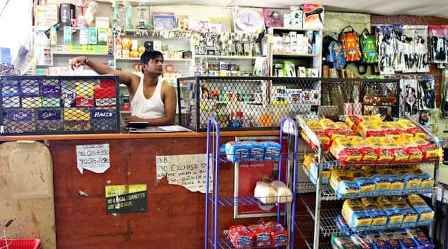
Fake food on the rise in Gauteng
Expired foods and counterfeit goods are costing the country revenue and livelihoods, say Tax Justice South Africa (TJSA) and the SA Revenue Services.
TJSA said if it were not for the increase in illicit goods being sold on the streets, at tuck shops, or in other areas, the country’s fiscus could afford an additional R12 billion for education, R6.5 billion for health, and another R6.5 billion for community development initiatives every five months.
Early this year, Independent Media reported that South Africa’s economy bled billions every year due to the rampant sale of fake foods and counterfeit goods, illegal mining activities, bootleg alcohol, fuel, and illicit cigarettes.
A report by the Transnational Alliance to Combat Illicit Trade (Tracit), released alongside Business Unity South Africa, indicated that illicit trade posed a danger to the economy.
Esteban Giudici, a senior policy adviser at Tracit, said recently of the report: “We have problems dealing with corruption, which facilitates the illicit goods trade. We don’t treat this problem as a criminal phenomenon.”
His sentiments were echoed on Saturday by Minister of Police Bheki Cele, who led the Operation Shanela crackdown against fake products in the Johannesburg CBD.
Cele said South Africa had a problem with counterfeit goods and illegal foreigners who rented business premises to sell fake and expired food items and other goods to South Africans.
On Saturday, members of SAPS conducted raids confiscating illegal cigarettes and expired food items in some of the illegally occupied buildings in the inner city.
They subsequently launched a manhunt for people who had taken out leases for buildings in the Johannesburg
CBD and were selling counterfeit goods.
According to a police report, several arrests were made in the process, with the discovery of fake IDs, passports, and other counterfeit items.
Officers said people legally acquired buildings in the CBD but leased them to undocumented residents who used them for illegal activities.
Skin-lightening creams and sexual performance enhancement pills were some of the many products seized by police in the CBD as part of Operation Shanela’s launch a few weeks ago.
The Police Ministry, Home Affairs, and Labour Department officials were also part of the operations.
Cele said the next step was to find the people who let the buildings to people selling these goods.
“This operation is one of many across the city in the past month meant to clamp down on illegal operations at hot spots like the Johannesburg CBD,” he said.
Police found abandoned goods and confiscated more than R1 million worth of counterfeit goods and illicit cigarettes.
Last week, police in Westenburg, Polokwane, found many illegal immigrants, most selling expired goods.
The police reported that most of the tuck shops had expired items on their shelves, and sometimes the expiration date would be rubbed off.
Many residents in the area complained that the sale of expired food items was common in most tuck shops owned by Bangladeshi and Pakistani nationals.
The police seized and destroyed the food products found.
It has been reported that there are few food inspectors to monitor the many tuck shops selling counterfeit and expired food items.
Cele said he was shocked to find shops owned by South Africans being hired out to illegal immigrants, who ended up using them to sell fake and expired products.
“These shops are owned by South Africans. They lease them to foreign nationals.
“We say that’s wrong. That is why we must get the list of those shops, and if they don’t use them, they must give them to other people who can use them.
“It is of no use to get the shops legally and lease them to people who are not supposed to be here, and people who are not registered and run away when they see the police come,” he said.
The Star
News Category
- International retailers
- On the move
- Awards and achievements
- Legislation
- Wine and liquor
- Africa
- Going green
- Supplier news
- Research tools
- Retailer trading results
- Supply chain
- Innovation and technology
- Economic factors
- Crime and security
- Store Openings
- Marketing and Promotions
- Social Responsibility
- Brand Press Office
Related Articles

Steps to stop shoplifting in your business

Beware of scam artists during the festive seaso...

Shoprite crackdown: Criminals get 24 life sente...

Top scams to watch out for as you enjoy this ye...


